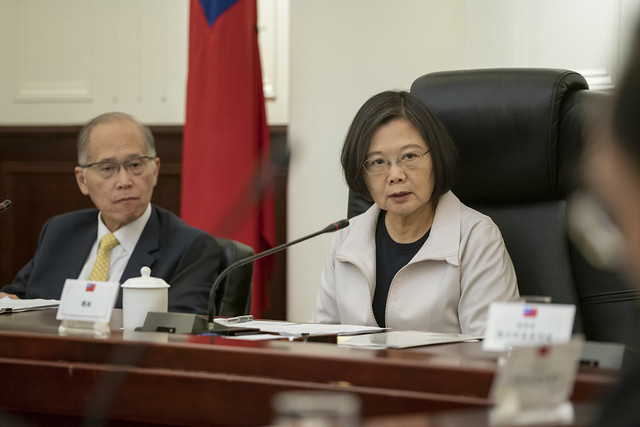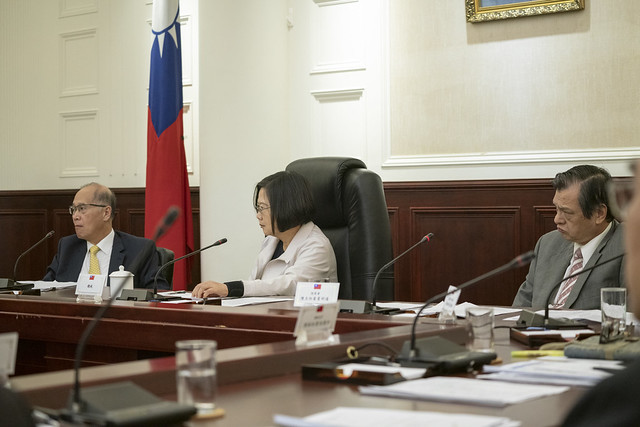News & activities
 News releases
News releases
Concerned about the situation in Hong Kong, President Tsai Ing-wen attended a briefing by the National Security Council's Task Force on Hong Kong on the afternoon of September 2 to better understand the latest developments, and how relevant government agencies are prepared to respond to possible scenarios. Following the briefing, President Tsai issued four directives:
1. The Republic of China (Taiwan) staunchly supports democracy and freedom in Hong Kong, and hopes that Hong Kong society can quickly restore stability. Developments over the past few days, however, are quite troubling, and have caused grave concerns within the international community.
We solemnly urge the Beijing authorities to honor their commitment to allow Hong Kong a high degree of autonomy, and not use the concern for the people of Hong Kong by Taiwan and other countries as an excuse for accusations of interference by outside forces. We also urge the Hong Kong government to avoid excessive use of force and actively engage in dialogue to resolve its differences with the public so that conflicts can be resolved peacefully and rationally.
2. Our government supports the Hong Kong people's struggle for democracy and freedom, and handles all Taiwan-Hong Kong exchanges, as well as travel to Taiwan by Hong Kong residents, in accordance with the law. Like the rest of the international community, when necessary and based on humanitarian concerns, we will provide necessary assistance to Hong Kong residents in Taiwan, and will not just stand on the sidelines and watch.
3. For Hong Kong students studying in Taiwan, the Mainland Affairs Council and the Ministry of Education should do their best to provide assistance so that those students can focus on their studies. We urge the Hong Kong government to understand the intentions of Hong Kong's young people: they care about Hong Kong's future and aspire to democracy and freedom. We also urge the Hong Kong government to abide by the principles of human rights and the rule of law in handling the relevant cases so that students can continue their studies in Taiwan.
4. The situation in Hong Kong has entered a critical phase. Our national security and administrative agencies must closely monitor developments in Hong Kong. They must assess the possible impact of those changes, and be prepared to respond, particularly regarding changes in finance, economics, and industry, and help Taiwanese firms and Taiwanese in Hong Kong respond to possible changes.
The National Security Council's Task Force on Hong Kong is chaired by National Security Council Secretary-General David T. Lee (李大維), and the meeting was attended by the heads of the Mainland Affairs Council, Ministry of National Defense, Ministry of Justice, Ministry of the Interior, and National Security Bureau.




